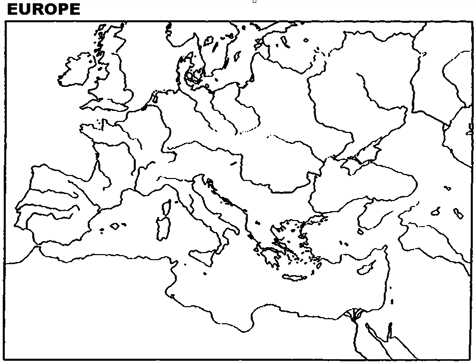Exam 9: The Heirs of Rome: Byzantium, Islam, and Latin Christendom
Exam 1: The Ancient Near East: The First Civilizations85 Questions
Exam 2: The Hebrews: a New View of God and the Individual90 Questions
Exam 3: The Greek City-State: Democratic Politics78 Questions
Exam 4: Greek Thought: From Myth to Reason77 Questions
Exam 5: The Hellenistic Age: Cultural Diffusion76 Questions
Exam 6: The Roman Republic: City-State to World Empire75 Questions
Exam 7: The Roman Empire: a World-State90 Questions
Exam 8: Early Christianity: a World Religion79 Questions
Exam 9: The Heirs of Rome: Byzantium, Islam, and Latin Christendom95 Questions
Exam 10: The High Middle Ages: Vitality and Renewal83 Questions
Exam 11: The Flowering of Medieval Culture: the Christian Synthesis78 Questions
Exam 12: The Late Middle Ages: Crisis and Dissolution76 Questions
Exam 13: The Renaissance: Transition to the Modern Age88 Questions
Exam 14: The Reformation: the Shattering of Christian Unity84 Questions
Exam 15: European Expansion: Economic and Social Transformations88 Questions
Exam 16: The Rise of Sovereignty: Transition to the Modern State84 Questions
Exam 17: The Scientific Revolution: the Universe Seen As a Mechanism81 Questions
Exam 18: The Age of Enlightenment: Reason and Reform89 Questions
Select questions type
Instructions: Please write a thorough, well-organized essay to answer each question. Compare and contrast the cultural and intellectual developments of Islamic civilization and Latin Christendom. How did each draw on the Greco-Roman tradition?
(Essay)
4.8/5  (34)
(34)
Key Terms Instructions: Please define the following key terms. Show Who? What? Where? When? Why Important?
Koran
(Essay)
4.8/5  (38)
(38)
In his The Consolation of Philosophy, Boethius stated a basic tenet of classical humanism when he said
(Multiple Choice)
4.8/5  (34)
(34)
Key Terms Instructions: Please define the following key terms. Show Who? What? Where? When? Why Important?
Byzantium
(Essay)
4.9/5  (33)
(33)
Key Terms Instructions: Please define the following key terms. Show Who? What? Where? When? Why Important?
Truce of God and Peace of God
(Essay)
4.7/5  (28)
(28)
Instructions: Please use this outline map of Europe to answer the question(s).
 Mark the boundaries of the Islamic civilization in 732. Locate and label the site of the Battle of Tours.
Mark the boundaries of the Islamic civilization in 732. Locate and label the site of the Battle of Tours.
(Not Answered)
This question doesn't have any answer yet
The text notes that the most significant historical consequence of the successful defenses of Constantinople against direct Arab attacks was the
(Multiple Choice)
4.9/5  (31)
(31)
Which of the following best describes the relationship between religion and philosophy during the height of Muslim civilization?
(Multiple Choice)
5.0/5  (39)
(39)
Key Terms Instructions: Please define the following key terms. Show Who? What? Where? When? Why Important?
Theodoric the Great
(Essay)
4.8/5  (35)
(35)
Key Terms Instructions: Please define the following key terms. Show Who? What? Where? When? Why Important?
chivalry
(Short Answer)
4.8/5  (41)
(41)
The new European civilization that emerged in Europe during the Early Middle Ages
(Multiple Choice)
4.7/5  (30)
(30)
Which of the following is NOT true of the traditional relationship of the Muslims to the Jews?
(Multiple Choice)
4.9/5  (44)
(44)
The Byzantines exercised all the following influences EXCEPT
(Multiple Choice)
4.8/5  (35)
(35)
The empire of Charlemagne disintegrated for each of the following reasons EXCEPT that it
(Multiple Choice)
4.7/5  (25)
(25)
Instructions: Please write a thorough, well-organized essay to answer each question. What successes and challenges did the Byzantine Empire face during the Early Middle Ages. What were Byzantium's most enduring legacies?
(Essay)
4.9/5  (35)
(35)
Where did Roman urban institutions prove to be the most durable?
(Multiple Choice)
4.9/5  (37)
(37)
Showing 21 - 40 of 95
Filters
- Essay(0)
- Multiple Choice(0)
- Short Answer(0)
- True False(0)
- Matching(0)